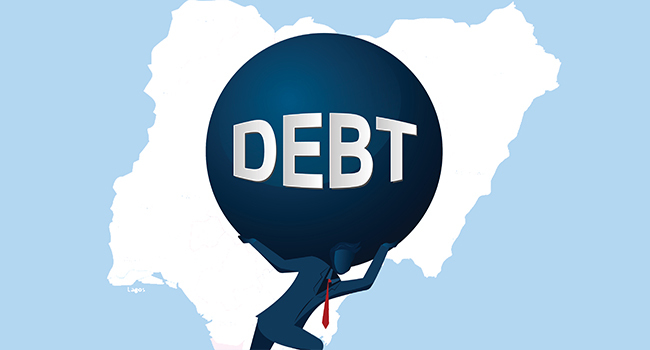NIGERIA’s fiscal health remains under intense pressure as the Federal Government spent a staggering 69 per cent of its total 2024 revenue on debt service, leaving limited resources for infrastructure and development spending.
This is according to the 2024 Budget Implementation Report (BIR) released by the Budget Office of the Federation (BOF) over the weekend sighted by News Point Nigeria, which revealed that out of the N19.354 trillion revenue earned in 2024, N11.887 trillion went into debt servicing alone.
Although the report shows an improvement compared to 2023 when debt service gulped 78 per cent of revenue, analysts warn that the figure remains dangerously high, far above global benchmarks.
The government had projected an aggregate expenditure of N27.5 trillion and a revenue of N18.32 trillion, implying a fiscal deficit of N9.18 trillion.
However, actual revenue exceeded expectations, reaching N19.354 trillion, N1.03 trillion above target. Yet, government expenditure also overshot projections, climbing to N28.726 trillion, which is N1.23 trillion higher than budgeted.
A deeper breakdown shows:
Oil revenue: N6.180 trillion (up from N2.430 trillion in 2023)
Non-oil revenue: N4.557 trillion (up from N3.312 trillion in 2023)
FGN independent revenue, donor grants, education tax, GOE retained revenue, etc.: N8.317 trillion (up from N6.743 trillion in 2023)
This pushed overall revenue growth to 149 per cent year-on-year, a sign of improved collection and higher oil receipts.
The Federal Government spent N28.726 trillion running the economy in 2024, up from N23.036 trillion in 2023.
Breakdown of expenditure:
Debt service: N11.887 trillion (69% of revenue)
Non-debt recurrent expenditure: N7.312 trillion
Capital expenditure: N7.789 trillion (22% of total spending, up from 18% in 2023)
Transfers: N1.738 trillion
While recurrent spending was slightly reduced (72% vs 73% in 2023), experts say Nigeria’s spending profile remains skewed towards salaries, overheads, and debt obligations rather than growth-driving investments.
Speaking on the BIR report, Prof. Godwin Oyedokun, an Accounting and Financial Development expert at Lead City University, Ibadan, warned that Nigeria’s debt-service-to-revenue ratio remains excessively high by international standards.
“The World Bank and IMF recommend that debt service should not exceed 30–40 per cent of government revenue for developing economies.
“Nigeria’s 69 per cent means nearly N7 out of every N10 earned is used to service debt, leaving very little fiscal space for development spending,” Prof. Oyedokun said.
He commended the slight improvement from 78 per cent in 2023 but stressed that Nigeria’s fiscal path is still not sustainable.
The professor highlighted that while capital expenditure rose to 22 per cent of total spending, it remains far below the ideal 30–40 per cent needed to bridge Nigeria’s massive infrastructure gap in roads, power, education, and health.
“Low investment in capital projects constrains productivity, job creation, and competitiveness,” he said, urging reforms that would prioritise infrastructure spending over bloated recurrent costs.







